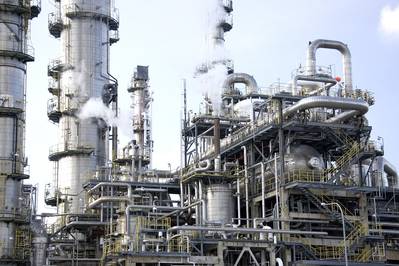Oil Slips Below $80 After Saudi Pledges Rapid Output Rise
Oil slipped below $80 a barrel on Monday as Saudi Arabia pledged to raise its crude production to a record, two weeks before U.S. sanctions potentially choke off Iranian crude supplies.
Saudi Energy Minister Khalid al-Falih told Russia's TASS news agency that his country had no intention of unleashing a 1973-style oil embargo on Western consumers, but rather was focused on raising output to compensate for supply losses elsewhere, such as Iran.
Falih said Saudi Arabia would soon raise output to 11 million barrels per day (bpd) from the current 10.7 million. He added that Riyadh had capacity to increase production to 12 million bpd.
Several U.S. lawmakers have suggested imposing sanctions on Saudi Arabia over the killing of journalist Jamal Khashoggi. The kingdom, the world's largest oil exporter, pledged to retaliate against any sanctions with "bigger measures".
"Oil prices are pointing lower again, with Saudi credit default swaps ballooning ... as the market becomes incredibly uncertain if there will be a shift in power when the crown prince is directly linked with the Khashoggi murder," said Stephen Innes, head of trading at foreign-exchange trader Oanda.
Brent crude futures were down 39 cents at $79.39 a barrel by 1333 GMT, while U.S. crude futures fell 45 cents to $68.67.
"As far as next year's supply/demand balance is concerned, it's not justified for them (Saudi Arabia) to increase production," PVM Oil Associates strategist Tamas Varga said.
Saudi credit default swaps, a form of insurance against a sovereign debt default, have shot to one-year highs, reflecting investor nervousness.
U.S. sanctions on Iran's oil sector start on Nov. 4 and analysts believe up to 1.5 million bpd in supply could be at risk.
The Organization of the Petroleum Exporting Countries agreed in June to boost supply to make up for the expected disruption to Iranian exports.
However, an internal document reviewed by Reuters suggested OPEC is struggling to add barrels as an increase in Saudi supply was offset by declines elsewhere.
The outlook for demand next year, meanwhile, is deteriorating.
OPEC estimates demand for its crude will fall to an average of 31.8 million bpd next year, from an average 32.8 million bpd this year.
"The full impact of the U.S.-China trade war will hit markets in 2019 and could act as a considerable drag on oil demand next year," Emirates NBD bank said in a note.
By Amanda Cooper, Additional reporting by Henning Gloystein in SINGAPORE








